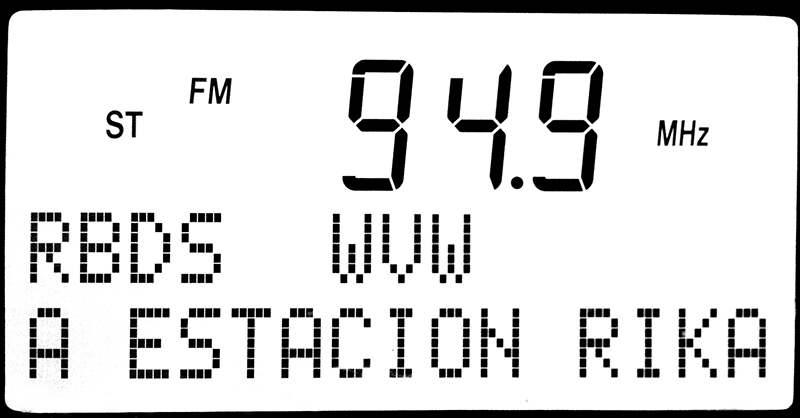Here’s what I wrote about pirate radio in New York, back in 2013 . I hoped to bait major media attention with that. Got zip.
Then I wrote this in 2015 (when I also took the screen shot, above, of a local pirate’s ID on my kitchen radio). I got a couple people interested, including one college student, but we couldn’t coordinate our schedules and the moments were lost.
Now comes news of pirate radio crackdowns by the FCC*, yet little of that news concerns the demand these stations supply. The default story is about FCC vs. Pirates, not how pirates address the inadequacies of FCC-licensed broadcast radio. (One good exception: this story in the Miami Herald about an FCC-fined pirate that programs for a population licensed radio doesn’t serve.)
To sample the situation, drive your car up Broadway north of 181st Street in Manhattan (above which the city gets very hilly, and there is maximal signal shadowing by big apartment buildings), or into the middle of the Bronx (same kind of setting), on any weekend evening. Then hit SCAN on your radio. Betcha a third of the stations you’ll hear are pirates, and the announcers will be speaking Spanish or Caribbean English. Some stations will have ads. Even if you only hear three or four signals (I’m on the wrong coast for checking on this), you’re tapping into something real happening which—far as I know—continues to attract approximately zero interest among popular media. (Could be it’s a thing on Twitter, but I don’t know.)
But there is a story here, about a marketplace of the literal sort. As I say in both those posts (at the top two links above), I wish I knew Spanish. For a reporter who does, there’s some great meat to chew on here. And it’s not just about the FCC playing a game of whack-a-mole. It’s about what licensed broadcasting alone can’t or won’t do.
Low power FM transmitters are cheap, by the way. The good ones are in low four figures. (One example.) The okay ones are in the two- and three-figure range. (Examples on Amazon and eBay.)
By the way, anything more than a small fraction of one watt is almost certainly in violation of Part 15 of the FCC rules, and therefore illegal. But hey, there’s a market for these things, so they sell.
By the way, is anyone visiting the topic of what will happen if Cumulus and/or iHeart can’t pay their debts? If either or both go down, a huge percentage of over-the-air radio in the U.S. goes with them.
The easy thing to blame is bad corporate decisions of one kind or another. The harder one is considering what the digital world is doing to undermine and replace the analog one.
If you’re wondering about why pirate radio is so big in New York yet relatively nowhere in Los Angeles (the next-largest broadcast market), here’s the main reason: New York FM stations are weak. The biggest sharing a master antenna atop the Empire State Building are only 6000 watts, at about 1300 feet up above the center of a metro with lots signal shadows and reflections caused by high-rise buildings, some taller than the Empire State Building.
In nearby New Jersey and the outer boroughs, you can put out a 10 or a 50 watt signal from a whip antenna on top of a house or a high-rise, on a channel right next to a licensed one, and cover a zip code or two with little trouble.
It’s hard to do that in most of Los Angeles, where stations radiate from mile-high Mt. Wilson at powers up to 110000 watts, and strong signals pack the dial from one end to the other. There are similar situations in Seattle, Portland, San Diego, Denver and San Francisco (though there are a few more terrain shadows for pirates to operate in). In flat places without thick clusters of high-rises in their outlying areas—Miami, New Orleans, Memphis, Houston, Dallas, Chicago, Minneapolis, Detroit—there are few places for pirates to hide among the buildings. In those places it’s relatively easy for the FCC to locate and smack down a pirate, especially if the pirates operate in a wide open way (as was the Miami example).
Still, I think pirate radio won’t go away, for the simple reason that it’s too easy to operate a station, and too few existing stations serving small community interests.

Leave a Reply